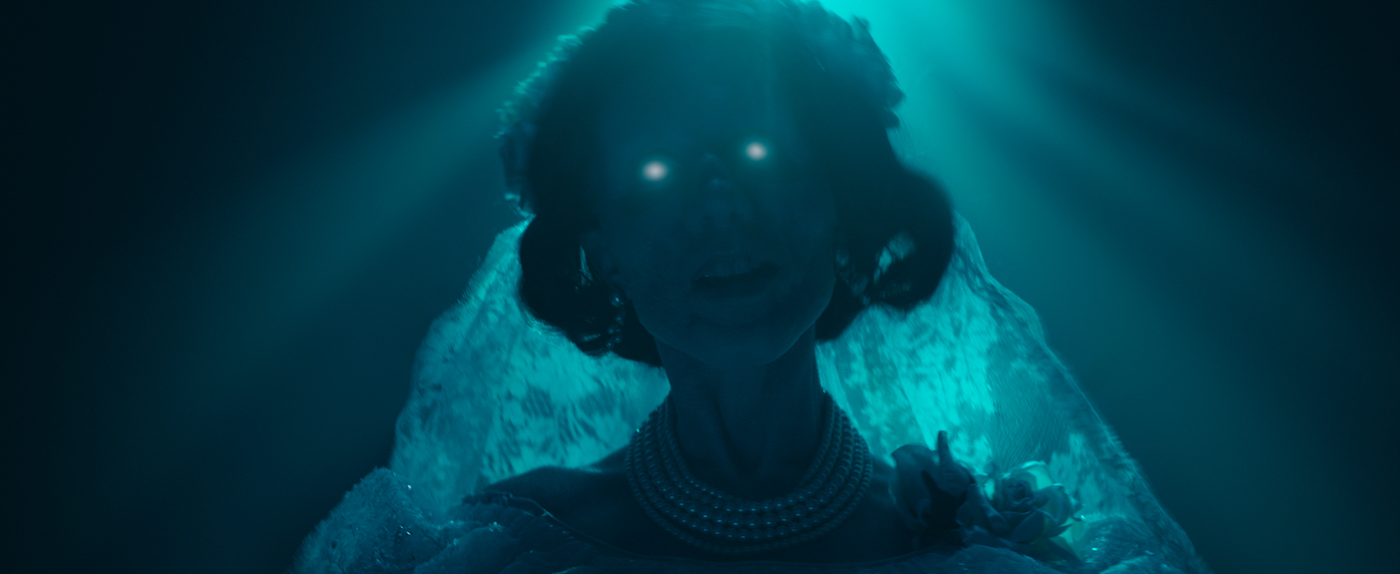
Directed by Justin Simien, Disney’s Haunted Mansion has an all-star cast, a funny, touching script, killer New Orleans scenery, and for a wellspring of inspiration, the Haunted Mansion ride at Disneyland, which holds particular sway over the movie’s aesthetic. The original ride veers from comedic to creepy, which for cinematographer Jeffrey Waldron (Little Fires Everywhere, The Morning Show), worked well as a starting point for designing different aesthetics for Haunted Mansion’s various astral planes.
“I’ve watched documentaries about the making of the ride. There’s an amazing, really complete book about the making of it, with all the original artwork and visual ideas from the sixties,” Waldron says. “Since shooting, I’ve been [the ride] on another dozen times, and I’m happy to say I feel like we captured whatever that magic is.” That said, the movie’s ghosts bring their worst after midnight, and “doing a film that has a lot of moonlight, a lot of low light, and a lot of different skin tones is a real technical and creative puzzle,” Waldron explained. “I knew we could never go nearly as dark as this ride goes, which sometimes is almost pitch black.”
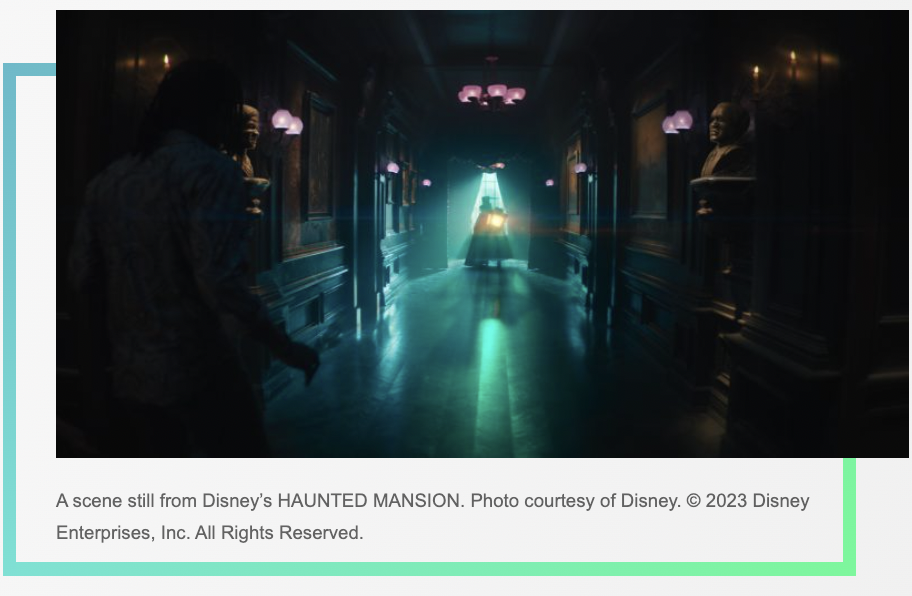
Instead, the cinematographer created a nighttime look utilizing a very soft, moonlit vibe with dim, subtle fill in the shadows. “You can really see everything, even though you feel like you’re looking into the dark,” he said. “To help that illusion, I desaturated a little bit because our rods and cones don’t work as well in the dark, and so we see things closer to black and white. And then, to create contrast, instead of having big, bright moonlight edges, I [used] color contrast. So if there’s a flashlight or headlights, I made sure those were very warm.”
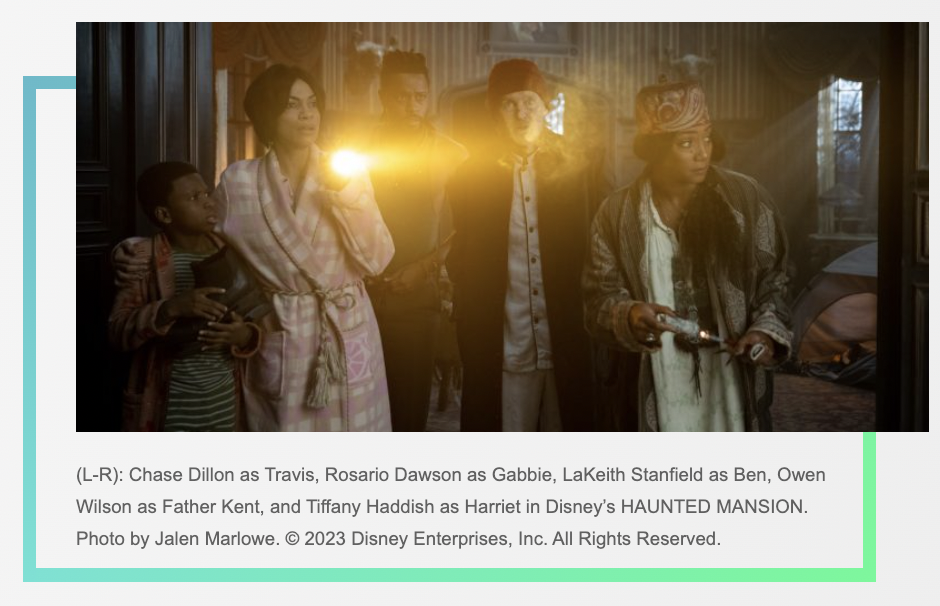
There are plenty of both flashlights and headlights as Gabbie (Rosario Dawson) and her son Travis (Chase Dillon) move into and then promptly try and fail to leave a historic mansion outside New Orleans populated by dozens of angry ghosts. They enlist the help of Ben (LaKeith Stanfield), a fallen academic and researcher hiding his own world of inner pain. Ben doesn’t believe in ghosts, at least at first, but he can’t resist the sales pitch from an irreverent priest, Father Kent (Owen Wilson), plus the promise of a couple thousand bucks. When the unusual situation at the mansion proves too much for everyone, Ben and Father Kent bring in a medium, Harriet (Tiffany Haddish), and a local historian with a heart condition, Bruce (Danny DeVito).
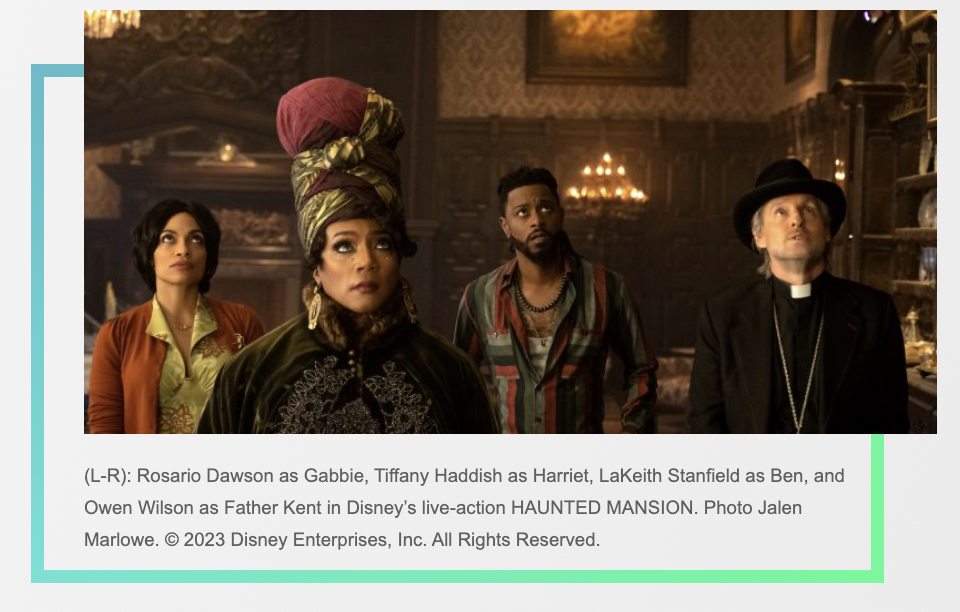
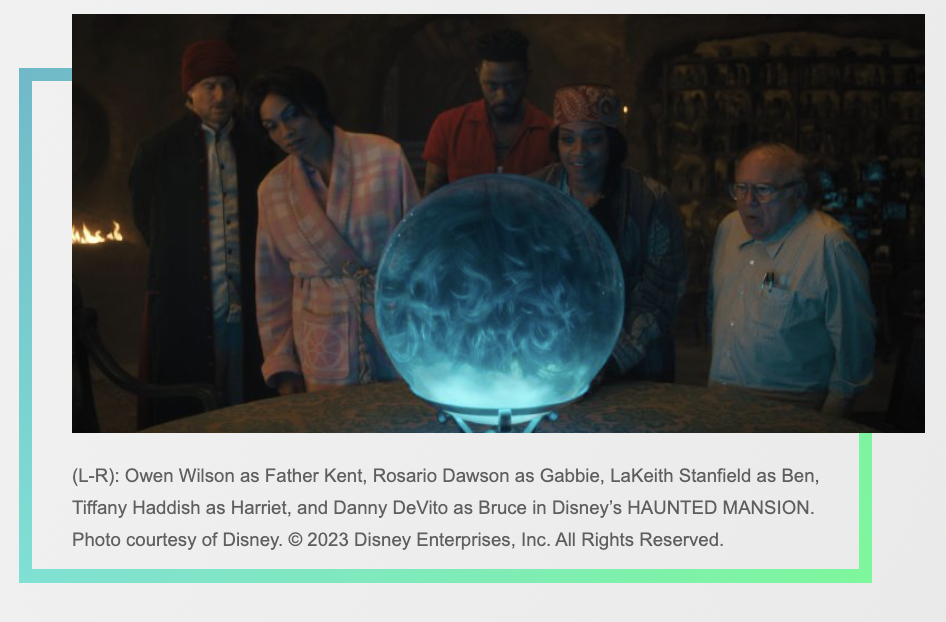
Once the film’s main cast is assembled in the cursed mansion, intentional communing with the ghosts begins. Waldron worked with Panavision’s “lens wizard,” Dan Sasaki, to create a unique lens for the waking realm “that didn’t bring a lot of weirdness to it, so we could save a lot of weirdness for the ghost realm,” where he then switched over to vintage series anamorphic lenses customized by Sasaki such that Waldron could fully give the film’s alternate realms their own sense of time and place. In one scene, for example, as the going gets tough, the tough get a better medium — one who just happens to be trapped in a crystal ball.
To tell Leota’s (Jamie Lee Curtis) story, “we used a very specific Panavision invention that’s an anamorphic portrait lens. Just the middle is in focus, and the rest is an oblong smear of glass. It’s all optical — it’s all in camera — but I liked the idea that when you’re looking through a glass ball to see this story, you actually feel the crystal ball elements of the glass there,” Waldron said.
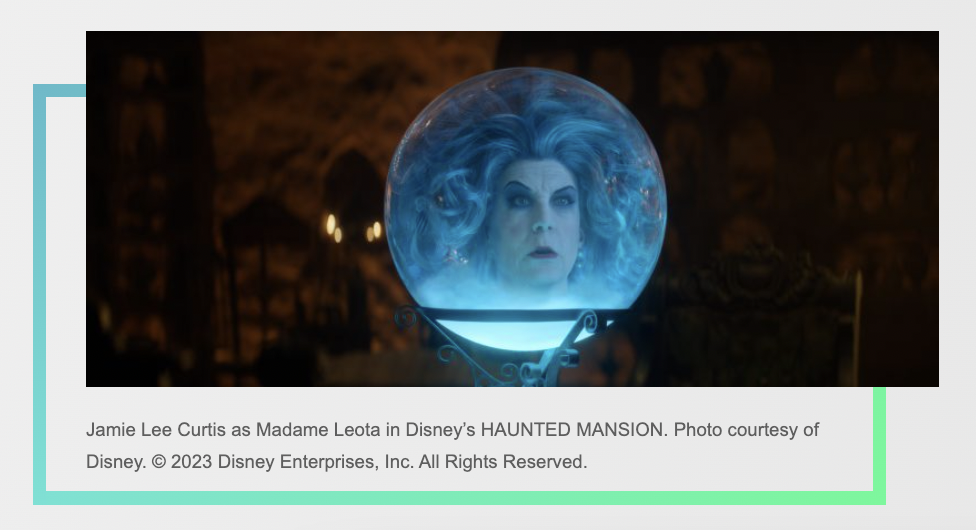
Frequently, however, plenty really was there. “One of the things Justin really wanted to maintain was a sense that we were putting as much in front of the camera as we could, which is unusual for a modern ghost movie,” the cinematographer explained. “You could shoot 360 and see this fully designed, fully built house, whereas usually there’d be a lot of digital completion going on these days.” Ghosts who had speaking lines were also present. “Their faces are tracked and modified, but the bodies, in terms of wirework and flying, were done practically, so the actors could interact with them physically in space,” said Waldron. Similarly, lighting details typical of haunted mansions (candles, old lamps, candelabras) also tended to be genuine — production designer “Darren Gilford and his team were two steps ahead. Not only did they create this super brilliant set that takes the ride and just amplifies it into a real aged classic mansion built on all this iconography, they put lights where we needed them,” the cinematographer said.
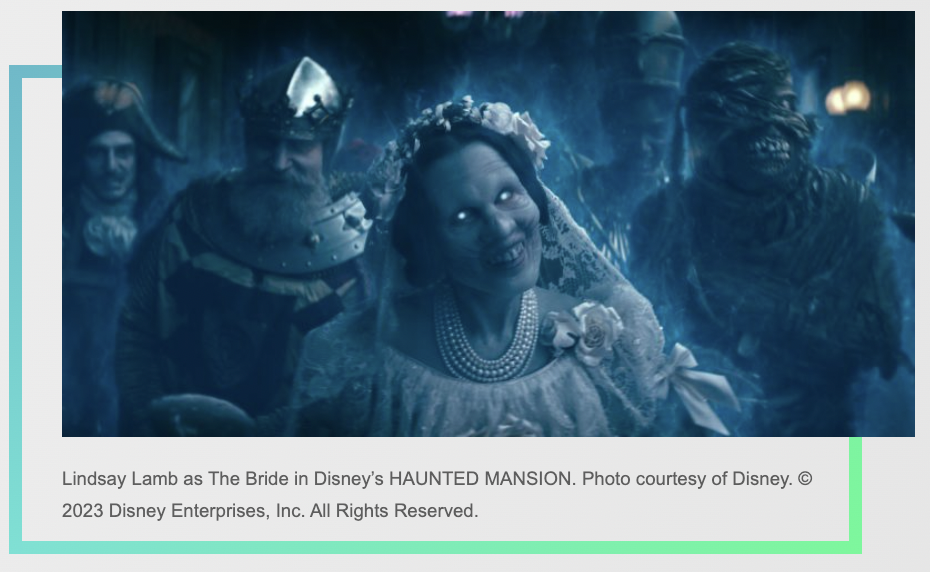
And since this is Disney, the ghosts, sets, and trappings may be as real as can be, but the movie’s creepy mansion and various spectral planes remain spooky without becoming terrifying, with plenty of laughs from Haddish and Wilson playing two hacks in over their heads. “If you look at the history of the ride from 1969, there were a lot of conversations about how far they were going to go horror and how far they were going to go funny and fun, and we definitely went down the same road,” Waldron says. “A big part of that was not to embrace tropes of horror or comedy, but to create what felt like a timeless, painterly mansion film that felt rich and big and could easily lean into horror, but could also lean into funny.”
Haunted Mansion smoothly veers from eerie to droll, helped by the DP’s visual clarity, no matter the hour, and an aesthetic sense of place, whether that’s the house, the bayou, or the realm of the un-living.
This article was first published on The Credits